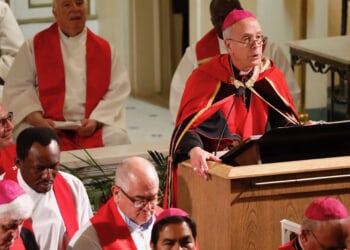Joe Egerton fought Leigh in 1992. He has had thirty years of experience in regulatory compliance having obtained one of the highest ever marks in the accounting special paper of the Oxford Management Studies MPhil.
Yesterday, I went through the books to see just how dire is CCHQ’s financial position. Today, it’s time to think what could be done to turn things around and build an effective (and cost-effective) Central Office machine.
The starting point must be to recognise that the way the party has been structured and run since 1997 has been a catastrophe. The reliance on a small number of very wealthy donors has proved disastrous, as in other respects (such as candidate selection) has the over-centralisation of the party.
Two immediate changes should be made. The auditors of the Labour Party report to “the Labour Party’s members as a body”, and the auditors of the Liberal Democrats report to “The Federal Conference of the Liberal Democrats”. Our auditors, on the other hand, report to “the Treasurer and Board members, as a body.” In future, the auditors should report to the party as a whole.
Second, the National Convention, as the representative body for the party membership, should both appoint an audit committee and each year be asked to approve the accounts, giving the Convention the opportunity to register any concern over the financial management of CCHQ either by rejecting the motion to approve or by an amendment or addendum.
We can learn from the Liberal Democrats. The Electoral Commission publishes donations of £2,230 or more made to individual associations and £11,180 to central parties. In the last quarter of 2024, the Liberal Democrats recorded donations of £460k to constituency associations, compared to £239k received by the central party (after excluding Short and Cranborne money). The local funding to the Liberal Democrats will be much larger still, as donations of less than £2,230 do not have to be reported.
The comparable figures for the Conservative Party were £237k to associations and £1.5m to the central party. Of the Conservative central party donations, £1m came from 12 donors giving £50,000 or more, while only one Liberal Democrat donor gave as much as £50,000. Analysis of available data suggests that the Conservative Party receives a far lower proportion of its income in donations of under £11,180 centrally, or £2,230 to associations, than the Liberal Democrats achieve.
The wider funding base of the Liberal Democrats shows a huge, untapped, population of donors which the Conservative Party could access if we rebuilt our association and area fundraising capability. That cannot be done without rebuilding local political engagement and local (association and area) structures.
We need to ask: what in 2025 is CCHQ for? We obviously do need a small but effective candidates’ department to vet potential candidates; we need an effective digital communications operation, although that needs to work closely with associations (we have to get members pushing out the message in the way that members of Reform have done, to our cost); we need a publications department and a political centre, to ensure a dialogue between the party in the country and the party in Parliament.
As there is now state funding (Short and Cranborne money) for research support for shadow cabinet members and Badenoch’s officem and as all MPs can now employ full-time research assistants, if we organised ourselves properly we only need a small but high-powered unit to coordinate research and campaigning.
There is an obvious need for IT to make sure membership and other records are kept and are accessible, but these days that is not a huge administrative task. We would need to provide some central support for national groups based on professions, but only when there is an effective area organisation. In short, we could have a much stripped-down central operation.
The impetus for this can only come from two places. The first is the Leader of the Party, who should appoint a highly competent chief executive and make supportive appointments to the Party Board.
The second is the party membership, through the constituency associations and the National Convention. The failed apparatchiks of CCHQ have so impoverished it that they are in no position to resist demands for reform. At the end of 2023, CCHQ had deposits of £2.5m from constituency associations, and held a further £667K in investments “in trust” for associations.
As such, CCHQ is now entirely dependent for its financial survival on the willingness of these associations to leave their money and investments in its hands.
The party can only be rebuilt as an effective fighting machine if constituency associations are willing to fund a stripped down CCHQ and a revived area structure. While they certainly need to raise money, if Conservative associations are serious about winning they also need to use their leverage to force a restructuring of the party as a whole and reform of CCHQ.
Badenoch wishes to win the next election. To do this she needs to sort out the mess that is CCHQ. When the Party assembles in Manchester this autumn, there must be not just a plan to rebuild, but demonstrable progress towards a Central Office that’s fit for purpose.






![‘We All Owe Him (Elon) a Huge Debt of Gratitude’ [WATCH]](https://www.right2024.com/wp-content/uploads/2025/03/‘We-All-Owe-Him-Elon-a-Huge-Debt-of-Gratitude-350x250.jpg)


![Trump's Admin Guts Another ‘Rogue Government Agency with Zero Accountability’ [WATCH]](https://www.right2024.com/wp-content/uploads/2025/03/Trumps-Admin-Guts-Another-‘Rogue-Government-Agency-with-Zero-Accountability-350x250.jpg)







